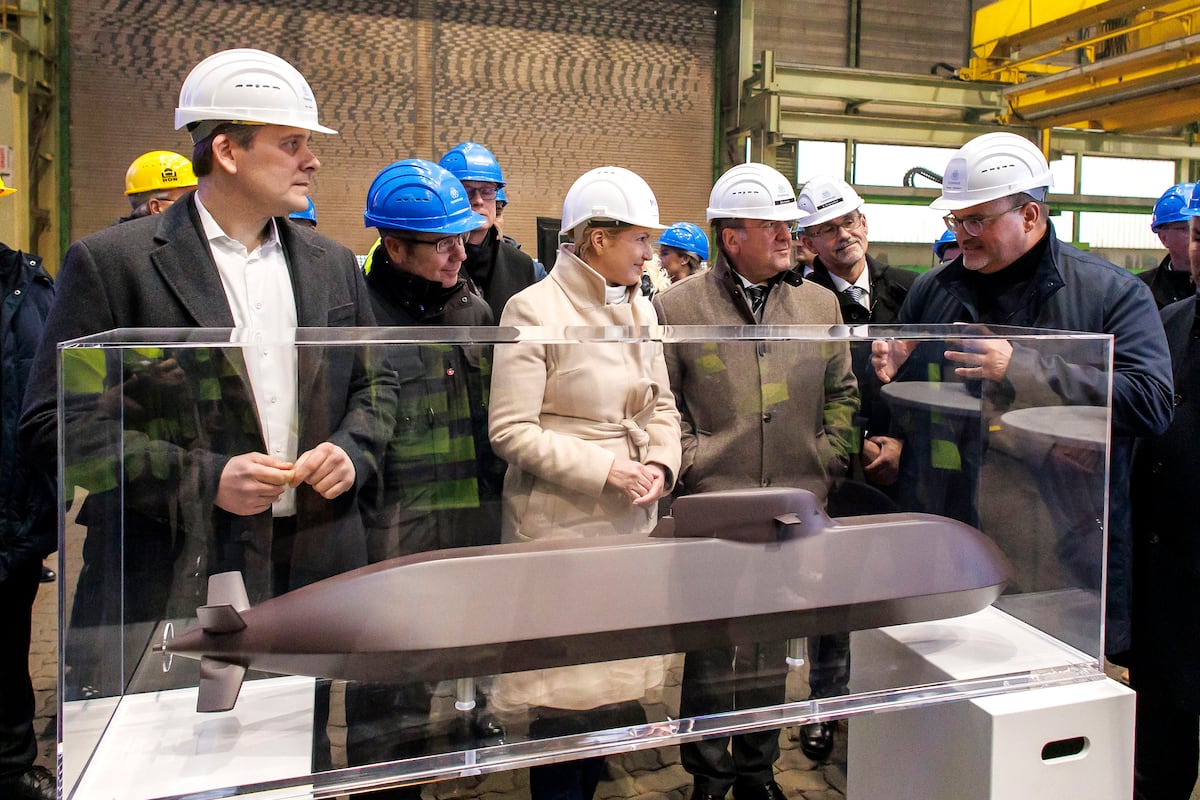BERLIN — Representatives of Germany’s defense enterprises have responded cautiously to a proposal for the government to become a shareholder in key companies.
German Defense Minister Borius Pistorius pushed ahead with the idea that the state might play a more active role by becoming a significant stakeholder in key military industries during an interview with the business newspaper Handelsblatt at the start of this week. He indicated the proposal had the support of other Cabinet members, notably of the finance minister.
“I am firmly convinced that we need state participation,” said Pistorius, “also to ensure that expertise and jobs remain in Germany.”
German-French tank maker KNDS and shipbuilder ThyssenKrupp Marine Systems are in the crosshairs for such action, Pistorius revealed.
KNDS, which produces the Leopard and Leclerc tanks among other armored vehicles, is planning to go public as soon as next year. At present, the French state holds half of all shares; the contemplated German government investment would aim to balance out French influence in the crucial company.
Hans Christoph Atzpodien, chairman of the defense contractor lobbying association BDSV, said he welcomed the federal government’s intention to secure domestic skills and jobs in strategic technology areas by way of state investments.
But he defended the industry’s free-market philosophy, arguing that heavy-handed government interference could scare away investors. Such a scenario, he said, could leave both companies and the government as the largest customer of defense goods in a worse spot, potentially unable to deliver the surge of military gear required for the country’s rearmament.
It was thanks to private investment, not state actions, he suggested, that the German defense industry was able to ramp up production on short notice in recent years.
There is precedent for the German government to buy shares in private military enterprises for geopolitical reasons.
Berlin acquired a blocking minority stake of 25.1% in the German sensor specialist Hensoldt in 2021, aimed at countering and balancing Italy’s leverage in the company, which it had gained through its own involvement with Leonardo. And the German state holds 11% of all shares of aerospace giant Airbus, although under an agreement from 2012, major governmental shareholders renege on their right to corresponding seats on the board of directors.
In a written statement published on Monday, Atzpodien also countered the defense minister’s concerns that arms makers may be poised to charge astronomical prices due to the sudden influx of cash. Pistorius had called it a “gold rush mentality” and warned of a possible looming “armaments price inflation.”
According to Atzpodien, government rules and the fact that “there is a high degree of responsibility within the industry itself” would combine to avoid price gouging.
Other European governments maintain stakes in their local defense companies: most prominently France with shares in Dassault Aviation, Naval Group, Thales, KNDS and others; Italy in Leonardo; Spain in Indra Sistemas; Sweden in Saab, and Norway in Kongsberg.
Linus Höller is Defense News’ Europe correspondent and OSINT investigator. He reports on the arms deals, sanctions, and geopolitics shaping Europe and the world. He holds a master’s degrees in WMD nonproliferation, terrorism studies, and international relations, and works in four languages: English, German, Russian, and Spanish.
Read the full article here








Leave a Reply